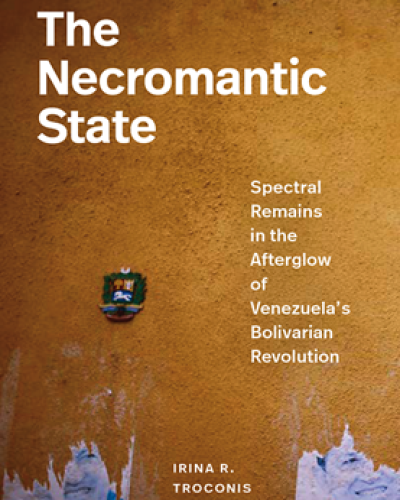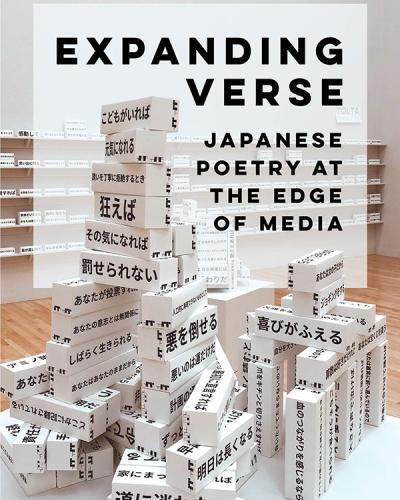by Jackie Swift
For roughly 500 years, European colonialism dominated the globe. From it grew a philosophy and a worldview that still live on today. We can find them in the way we categorize people by race, in our emphasis on monocrop agriculture, even in the way we define the geographic borders of America, says Tao Leigh Goffe, Africana Studies.
Goffe works at the intersection of environmental humanities, science, and technology. As a researcher, writer, and DJ, she is especially interested in histories of imperialism, migration, and globalization. Currently, her research focuses on the story of colonialism, especially as it manifests in the Caribbean islands. “The Caribbean is the perfect laboratory to understand the various entanglements of multiple colonialisms,” she says. “I am looking at questions of Dutch, Spanish, French, and English empire within the Caribbean and how we can use them to learn about the Americas more broadly—especially through the plantation, which was a truly violent structure, not only against people, but also in the violence against the natural environment.”
Mingling People, Creating New Cultures
Goffe is channeling her research into two different book projects. The first, Black Capital, Chinese Debt, traces the cultures and creative production that came from the mingling of people from different corners of the globe on the plantation. “Indentured Chinese and Indian laborers were often forcibly brought by European planters to Caribbean plantations under false pretenses as labor competition so that enslaved Africans and newly emancipated people would not have the power to organize and would continue to toil away on the plantations for meager or no wages,” she says. “I’m interested in the aftermath of what it means to racialize and pit all these people against one another. The question of debt is one not only of monetary reparations, but also of what do we owe each other? And how did we come to be racialized as Black, Asian, and white in the space of the Americas against one another? How did that work as a system of colonial management and labor optimization for the flourishing of plantation profits?”
Using sensorial archives, Goffe pursues questions of taste and sound as a way of understanding the hidden side of history. In one chapter, which has also appeared as an article, she looks at the history of the invention of the sound system and modern DJing in Jamaica. When Black veterans of World War II returned home to Jamaica, they brought with them advanced training in electrical engineering and technological expertise, she explains. Armed with this knowledge and backed by the capital of Chinese merchants, the veterans created the first sound systems as mobile units with sets of speakers, a microphone, and turntables for DJing.
“To think about electronic music, about DJing culture, about reggae music is to understand how, out of a place of scarcity and poverty, the Caribbean people were still able to create a vibrant culture,” Goffe says. “And not only culture, but technology—the actual mechanics and electrical engineering and physics know-how to design loudspeakers. That story is one of Black technicians and also of Chinese people, who were working together outside of the colonial system to throw parties and enjoy life.”
The Impact of Colonialism on Nature
As Goffe finishes up Black Capital, Chinese Debt, she will be turning to her second book project, After Eden. In it, she will continue to pursue questions of the impact of colonialism in the Caribbean, specifically in light of ecology and nature, and how that is still influencing the world today.
“Race is not a fact. It’s an idea, a concept. It’s important for us to know the difference. Race is real because it structures our entire world, but it was created.”
As part of her research, she has looked at the legacy of Carl Linnaeus, who invented the taxonomic process by which species are categorized and named. “Taxonomy is part of a colonial practice which says that we have to know everything, categorize everything, and have specimens of everything,” she says. “Knowledge production becomes a means of possession, acquisition, and extraction.”
Her research along this line has led her to the phenomenon of bird watching and the investment birders have in noting down the different species of birds they see, thus categorizing them. “It really fascinates me that there is this global community of birders that is not very interested in the people who live in the places they visit,” she says. “They book a plane, land—maybe not even with a suitcase—go straight to the location where the bird has been seen, note down their own observation, maybe take a picture, check the bird off their list, and go on to the next place. It’s a colonial psychology, an extractive idea of a hobby.”
This emphasis on taxonomy, categorization, and consumption of species is akin to the concept of race, Goffe explains. “Race is not a fact,” she says. “It’s an idea, a concept. It’s important for us to know the difference. Race is real because it structures our entire world, but it was created. You can see that, for instance, in the Linnaean Society colonial archives, in the way they talked about different species of animals. They tried to apply this categorizing to people, as a colonial sorting tool in order to manage the plantation. We all know the violent outcome of trying to say some people are subhuman.”
Ecological and Racial Crises Intertwined
Linnaeus lived during the Age of Enlightenment, a European philosophical and social movement in the seventeenth and eighteenth centuries that promoted reason. His work helped contribute to the colonial idea of human beings as superior to animals and to nature, Goffe says. “We can see the violent consequences of that have come to fruition in terms of the climate crisis,” she says. “It is deeply entangled in the crisis of racial slavery and the plantation, these colonial ways of categorizing people, and the pressure to extract—to extract from the earth, to extract knowledge from people. It’s all part of one totalizing project that we’re finally reckoning with. You can’t understand ecological crisis without understanding racial crisis.”
Goffe also sees advocacy in the real world as part of her work. Recently she joined with Jeffrey P. Palmer, Performing and Media Arts, to create a collective of artists, researchers, and students called the Dark Laboratory. The collective explores questions of ecology and climate crisis especially as they pertain to Black and Indigenous people. “We must realize that we need to look to the people who have been guardians and custodians of the planet, who are most often from Black and Indigenous communities, and learn from the way that they see nature to undo the environmental damage of colonialism,” she says.






